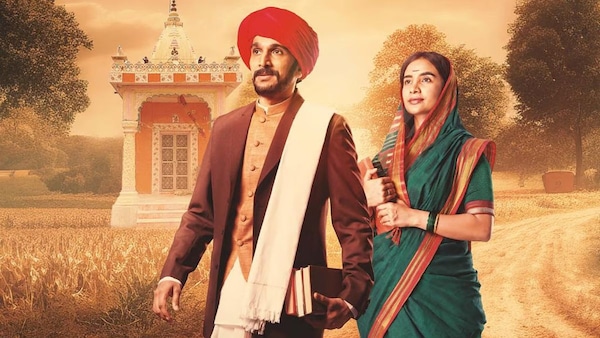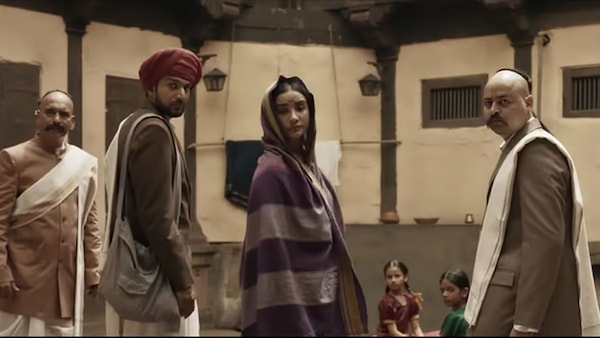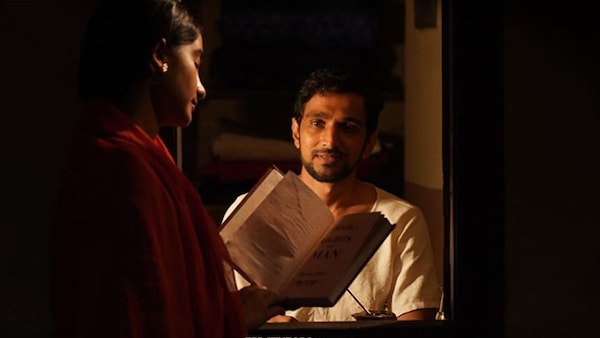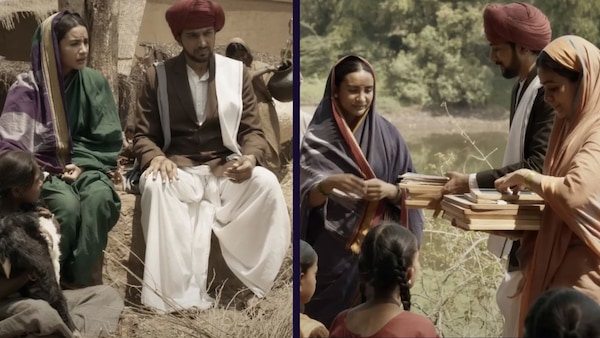Phule Is A Dull Biopic Of Two Revolutionary Social Reformists
Phule unfolds with the dullness of a history lesson, shrinking the expansiveness of their achievements to cherry-picked incidents and reducing the eventfulness of their lives to mere events.

Last Updated: 04.41 AM, Apr 25, 2025
THE ONLY SHORTCOMING about great lives is that stories about them can be told only once. It is not so much the arc being familiar as it is the effect getting diffused. It is not so much the details being reiterated as the ingenuity of the biopic getting lost. This is a standing problem with Ananth Mahadevan’s Phule, a rare Hindi film about Jyotirao and Savitribai Phule. It had one chance to convey the incredible journey of the social reformists, and it squanders it.
On paper, it is an almost impossible task. Even a cursory research about both their lives will outline a scalding revolution that most Hindi films lately work overtime to generate from uninspiring stories. The heroism is so in-built in the narrative that it seeps even without a rousing background score and sweeping monologues. The commentary is so entrenched in the way they conducted themselves that it requires none of the crutches of embellishment that most biopics are prone to lean on.

Sample this: In pre-independent India, during the 1800s, Jyotirao and Savitribai Phule worked tirelessly against untouchability and caste discrimination, extending their work even to facilitate education for women. They started the first school for girls in Pune in 1848 and marched on despite facing enormous disparities from higher caste people. They led by example and were so progressive in their stance that, in hindsight, we all owe a collective debt to the husband-wife duo for shaping the thoughts of an entire nation even before it had assumed a specific identity.
It is a rich, expansive tale that, in the hands of an interesting filmmaker, was capable of underlining the merits of retelling certain stories. Mahadevan is not that person. His rendition plays out with the dullness of a history lesson where the extensiveness of their achievements is shrunk to cherry-picked incidents and the style, in effect, reduces the eventfulness of their lives to events in their lives. The difference is subtle but vast.

The film opens in 1897, when the bubonic plague outbreak in India was claiming thousands of lives. Savitribai Phule (Patralekha) with her son Yashwant (Darsheel Safary) were helping people. The timeline then shifts to 1848 to a pivotal moment when they are planning to teach children, and as the date moves further back, it is revealed that Jyotirao Phule (a formidable Pratik Gandhi) was the first teacher of his much younger bride. As time passed, they became equal partners and harboured similar progressive beliefs about planting the seed of education in young, impressionable minds, which would later contribute to nation-building.
Mahadevan is fairly linear in his storytelling and even conventional. A booming voiceover supplies most of the context as Jyotirao and Savitribai Phule’s lives are depicted with dotted highs and lows. Each hindrance is met with resistance and later with eventual victory. When some Brahmin threaten Jyotirao Phule and his family for starting a makeshift school for girls, he goes to his friend, a Muslim, and continues his work there. When boys from the upper caste throw cow dung at Savitribai Phule, she is momentarily sad till Jyotirao tells her to keep a clean sari at all times in school and wait to see whose resolve breaks first.
It is not that either of these is untrue, but Phule makes a pattern of depicting them which is as bland as it is tedious. None of the moments are given space to breathe, save for a moving scene towards the end when Jyotirao lies on his deathbed and Gandh breaks into a wry smile, wondering aloud if in death, he will be allowed to be in proximity to God, given that he was denied the same while being alive. The actor is ever so watchable and contributes to a couple of instances in Phule that leave a deeper imprint. Like when he stops two men who were hired to kill him and observes that it was the first time that Brahmins had spent money on them or that prescient pint in the film when Jyotirao is awarded the coveted title of Mahatma and he states that people in India were vulnerable to fight over caste and religion in the future.

His thoughtful portrayal differs from Patralekha’s affected turn that tries too hard. Her way of speaking broken English is too showy which aligns with her overall depiction of Savitribai. The latter is a fascinating personality that deserved more complexity and nuance in terms of writing and rendition.
It says something about the times we have to inhabit that most anti-establishment films based in colonial India play out like dissenting films relevant in the current political scenario. Jyotirao’s fears about discrimination have had a morbid realisation in the last few years. Therefore, it is also no surprise that the Central Board of Film Certification (CBFC) demanded cuts in the film and stalled its release. For the story of Jyotirao and Savitribai Phule might be centuries old, but the issues they addressed are now more pressing than ever.
